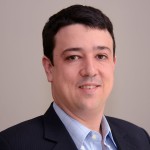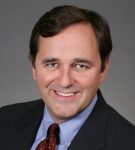Part III: Lessons Learned From The US Elite's Triumph Over Their Their UK Counterparts
The third in a three-part series looking at competition between elite US and UK firms. Part III examines what lessons can be learned from the success of US firms.
August 15, 2017 at 10:48 AM
6 minute read
 Editor's Note: this is the final part of a three-part series looking at competition between elite US and UK firms. Part I presented evidence that the US elite has vanquished their UK counterparts and Part II examined how this victory came about.
Editor's Note: this is the final part of a three-part series looking at competition between elite US and UK firms. Part I presented evidence that the US elite has vanquished their UK counterparts and Part II examined how this victory came about.
The US elite have distanced themselves significantly from their UK counterparts, as described in Parts I and II of this three-part series. They won the war for lateral talent, opened up a sizeable profitability gap, grew this gap significantly through the great recession, and have exhibited greater organizational growth and vitality, see Figures 1 and 2. The data suggest they are locking in their advantage as the phenomenon of increasing returns takes hold—this is, through the tendency for firms who are ahead to get further ahead as virtuous loops are established between attractive clients, great lawyers, and strong profits.

There are many salient lessons from this story for US law firms of all stripes. We don't profess to have codified them all. However, in the hope they prompt more thought, discussion, and learning, we share a strawman distillation of these implications below.

Lesson 1: Declines in market position can originate from small decisions
A firm can suffer a decline in market position without, say, a catastrophic merger or ill-advised lateral partner guarantees. A series of small decisions, none of which seem especially risky at the time, can aggregate to undermine significantly a firm's profitability and hence its competitiveness. Hard thinking, and steadfast resolve, is required at all times.
Lesson 2: Growth is good, but profits matter more
Momentum in firm revenues is a nice-to-have; momentum in profitability is a must-have. There may be some commercially-successful partners who lateraled to a firm because it was growing faster; if there are, they are greatly outnumbered by those who left to a firm that could pay them more.
Lesson 3: Partner pay must reflect variation in economic value
As a firm's practices grow more diverse, either in terms of geographic focus or service offering, the economic value of partners' practices necessarily diverges. A firm's compensation system must evolve in real time to ensure individual partners' compensation is aligned with the widening economic value. Failure to do so yields under-payment (relative to economic value) of the most commercially-productive partners. This heightens the risk of these partners departing to firms more willing to compensate them commensurately with their economic worth.
Lesson 4: Corporate portfolio models don't apply to law firms
Firm leaders should internalize that typical corporate models of investment and growth are dangerous to apply to law firms. At a corporation, 'cash cow' businesses can generate large amounts of free cash flow practically in perpetuity. Corporate leaders can redeploy this cash to invest in new ventures in the hope of creating future cash cows. However, at law firms, free cash flow only exists if a partner is being paid below the economic value of her practice. This can happen only rarely, briefly, and to a small degree, before the risk of high-value partners departing becomes intolerable. No cash cows, low investment capacity.
Lesson 5: Global office networks are not, by themselves, a differentiator
Having a differentiated offering only matters if what's different about the offering is something the client could not otherwise readily replicate. For example, a client offering that entails services from a firm's lawyers housed across a global network of offices may be differentiated in the sense that few firms could provide the service in this way. However, if what results for the client is not meaningfully better than that which could be secured by their primary law firm engaging independent counsel across the same array of locations, then there is no benefit to the client from the global firm's footprint. Indeed, there could be a cost to the client if the global firm's fealty to the lawyers in its office network results in the client not accessing the best-of-breed lawyer in a particular jurisdiction.
Lesson 6: Global office networks have to be tightly integrated to create value
Competitive advantage only accrues from a global office footprint if it is used to create offerings that are truly distinct and valuable to clients. Such offerings do not result from cross selling (the law firm equivalent of a fast food upsell, i.e. do you want fries with that?) which adds 'volume' for the law firm but doesn't add 'value' for either the client or the law firm. Rather, distinct and valuable offerings are created when lawyers with different backgrounds work together in ways that wouldn't happen if they worked across firm boundaries and that lead the lawyers to integrate their separate expertise in ways that bring forth novel, or streamlined, solutions. Such integration is typically most fruitful when focused on emerging legal specialties and at the intersection of existing practice area definitions. It's stunningly difficult to pull off this level of integration at law firms. It requires enablement, example setting, and relentless encouragement from firm leadership. It also requires dogged, activist, client-teaming and practice-management overlays to a firm's office-centered organizational structure.
 Nicholas Bruch is a Senior Analyst at ALM Legal Intelligence. His experience includes advising law firms and law departments in developing and developed markets on issues related to strategy, business development, market intelligence, and operations. He can be reached by Email, Twitter, or LinkedIn.
Nicholas Bruch is a Senior Analyst at ALM Legal Intelligence. His experience includes advising law firms and law departments in developing and developed markets on issues related to strategy, business development, market intelligence, and operations. He can be reached by Email, Twitter, or LinkedIn.
 Hugh A. Simons is an ALM Intelligence Fellow. He is a former senior partner and executive committee member at The Boston Consulting Group and the former chief operating officer at Ropes & Gray. He is currently conducting research for a book on the fundamentals of elite law firm strategy.He can be reached by Email
Hugh A. Simons is an ALM Intelligence Fellow. He is a former senior partner and executive committee member at The Boston Consulting Group and the former chief operating officer at Ropes & Gray. He is currently conducting research for a book on the fundamentals of elite law firm strategy.He can be reached by Email
![]()
This content has been archived. It is available through our partners, LexisNexis® and Bloomberg Law.
To view this content, please continue to their sites.
Not a Lexis Subscriber?
Subscribe Now
Not a Bloomberg Law Subscriber?
Subscribe Now
NOT FOR REPRINT
© 2025 ALM Global, LLC, All Rights Reserved. Request academic re-use from www.copyright.com. All other uses, submit a request to [email protected]. For more information visit Asset & Logo Licensing.
You Might Like
View All



Trending Stories
- 1Judge Finds Trump Administration Violated Order Blocking Funding Freeze
- 2CFPB Labor Union Files Twin Lawsuits Seeking to Prevent Agency's Closure
- 3Crypto Crime Down, Hacks Up: Lawyers Warned of 2025 Security Shake-Up
- 4Atlanta Calling: National Law Firms Flock to a ‘Hotbed for Talented Lawyers’
- 5Privacy Suit Targets Education Department Over Disclosure of Student Financial Data to DOGE
Who Got The Work
J. Brugh Lower of Gibbons has entered an appearance for industrial equipment supplier Devco Corporation in a pending trademark infringement lawsuit. The suit, accusing the defendant of selling knock-off Graco products, was filed Dec. 18 in New Jersey District Court by Rivkin Radler on behalf of Graco Inc. and Graco Minnesota. The case, assigned to U.S. District Judge Zahid N. Quraishi, is 3:24-cv-11294, Graco Inc. et al v. Devco Corporation.
Who Got The Work
Rebecca Maller-Stein and Kent A. Yalowitz of Arnold & Porter Kaye Scholer have entered their appearances for Hanaco Venture Capital and its executives, Lior Prosor and David Frankel, in a pending securities lawsuit. The action, filed on Dec. 24 in New York Southern District Court by Zell, Aron & Co. on behalf of Goldeneye Advisors, accuses the defendants of negligently and fraudulently managing the plaintiff's $1 million investment. The case, assigned to U.S. District Judge Vernon S. Broderick, is 1:24-cv-09918, Goldeneye Advisors, LLC v. Hanaco Venture Capital, Ltd. et al.
Who Got The Work
Attorneys from A&O Shearman has stepped in as defense counsel for Toronto-Dominion Bank and other defendants in a pending securities class action. The suit, filed Dec. 11 in New York Southern District Court by Bleichmar Fonti & Auld, accuses the defendants of concealing the bank's 'pervasive' deficiencies in regards to its compliance with the Bank Secrecy Act and the quality of its anti-money laundering controls. The case, assigned to U.S. District Judge Arun Subramanian, is 1:24-cv-09445, Gonzalez v. The Toronto-Dominion Bank et al.
Who Got The Work
Crown Castle International, a Pennsylvania company providing shared communications infrastructure, has turned to Luke D. Wolf of Gordon Rees Scully Mansukhani to fend off a pending breach-of-contract lawsuit. The court action, filed Nov. 25 in Michigan Eastern District Court by Hooper Hathaway PC on behalf of The Town Residences LLC, accuses Crown Castle of failing to transfer approximately $30,000 in utility payments from T-Mobile in breach of a roof-top lease and assignment agreement. The case, assigned to U.S. District Judge Susan K. Declercq, is 2:24-cv-13131, The Town Residences LLC v. T-Mobile US, Inc. et al.
Who Got The Work
Wilfred P. Coronato and Daniel M. Schwartz of McCarter & English have stepped in as defense counsel to Electrolux Home Products Inc. in a pending product liability lawsuit. The court action, filed Nov. 26 in New York Eastern District Court by Poulos Lopiccolo PC and Nagel Rice LLP on behalf of David Stern, alleges that the defendant's refrigerators’ drawers and shelving repeatedly break and fall apart within months after purchase. The case, assigned to U.S. District Judge Joan M. Azrack, is 2:24-cv-08204, Stern v. Electrolux Home Products, Inc.
Featured Firms
Law Offices of Gary Martin Hays & Associates, P.C.
(470) 294-1674
Law Offices of Mark E. Salomone
(857) 444-6468
Smith & Hassler
(713) 739-1250








